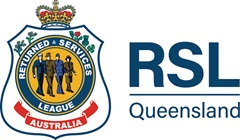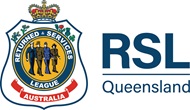
Leaving Defence? Here are 5 resume and job interview tips
22 March 2022- Ideas & info
Give yourself the best chance of success in the civilian job market.
To give ex-serving Defence members and Defence partners the best chance at success as they transition into civilian employment, we asked Teegan and Yvette to share their top tips for writing your resume and nailing job interviews.
1. QUALITY VS. QUANTITY
The team recommends adjusting your resume to suit the job you’re applying for, rather than using the same resume to apply for multiple jobs.
“We always encourage tailoring your resume and application to the specific role you’re applying for,” Teegan says.
“There’s no such thing as an all-encompassing resume that you can use for every job. Hiring managers are looking for keywords, skills and experiences to assess if you are the right fit and suitable to proceed to an interview.”
While many veterans are eager to secure civilian employment, taking the time to apply for quality roles that suit your goals and values is a better approach than applying for anything and everything.
“It really is quality over quantity – as hard as it can be when you’re in job seeking mode.”
2. IT’S WHO YOU KNOW
Teegan says it is all about a hidden job market right now. That is, jobs that aren’t advertised or shared online.
“There is a hidden job market outside of the roles we see advertised. There is a lot of value in tapping into your own personal and professional networks. By building on these relationships you can expand your networks and create new opportunities and contacts,” she says.
“Consider asking friends or peers who work in industries you want to move into how they got there, what courses they studied, or call recruiters to find out more information about what you might need to be considered for certain jobs. People would never go and work as a GP without having their medical degree, so it is important that as part of this process you research all the elements of your new career path.”
3. TRANSLATE AND DEMONSTRATE YOUR DEFENCE SKILLS
Many of the skills you will have developed during your Defence career are transferable to a civilian career. Leadership, planning, critical thinking, and communication – some of the core skills of Defence – are all highly sought after in the civilian workforce.
Yvette says they encourage participants of RSL Queensland’s Employment Program to spend time, before applying for jobs, to identify the skills they can bring from Defence, what they enjoyed about their current and past jobs, and what their core values are.
“Our team works with the applicant to help them translate their skills from Defence into a civilian capacity,” she says.
“Like every industry, Defence has its own unique language which may not be understood by a recruiter or hiring manager who is sorting through the applications.”
“Where possible, try to translate your Defence experience to match the language the employer has used in their ad. As the saying goes, ‘keep it simple’ and use the STAR method (Situation, Task, Action, Result) to expand on your specific experiences.”
Ideally, Yvette and Teegan agree, you want your 13-year-old niece or 80-year-old grandparent to be able to read your application and understand what you mean.
“We also encourage our clients to talk about their responsibilities and achievements in measurable ways. For example, highlighting the number of people in the team they managed or led, and how big the operation they led was – whether this be monetary or volume of people.
4. KNOW YOUR GOAL
Sometimes knowing what you want to do once you leave Defence can be the hardest thing to unravel. Before writing any applications, Teegan and Yvette suggest spending time considering and writing down what you need from the job you’re looking for.
“It’s not always going straight into a job that is the best step for an ex-serving veteran,” Yvette says.
“Sometimes it might be considering a career change, learning a trade as a mature age apprentice or going back to do further study. We’ll often see people take a sideways step, in the short term, to get a new skill which offers them greater opportunities in the long term.”
Research is key for finding out what you will need to achieve your desired next step – such as specific qualifications, tickets or licences.
“We encourage taking the time to think about what you want and what you really value in your work. For example, flexibility or the opportunity to learn. Even consider the minimum amount of money you need each week to keep the cogs turning at home so that you’re applying for roles with the appropriate remuneration.”
5. PRACTICE MAKES PROGRESS
You’ve prepared your resume and application, and been called for an interview. Congratulations! It’s never too early to start practising for your eventual interview, according to Teegan and Yvette.
“A lot of people go in unprepared and that’s where they get stuck,” Teegan says.
“If you’ve been offered an interview, spend time looking back at the job ad and thinking about what questions you’re likely to be asked. Research the organisation and think about the behavioural questions they’ll ask and have examples ready to share. Write down notes and practice in the mirror. It might feel silly, but it will make a big difference when you’re sitting in front of the interviewer.”
You can also ask a friend or family member to help role play an interview with you in advance to build confidence and get used to talking about your achievements.
“We know for a lot of Defence members talking about themselves can be difficult and not something they’re used to doing when it comes to work and their achievements. That’s why it’s important to practice in advance and get comfortable talking about what you achieved in your role, including the positive outcomes you delivered,” Yvette says.
Find the support you need
The RSL Employment Program provides ex-Defence members and Defence partners with resume assistance, interview coaching, and other practical support to assist in the search for meaningful employment. To sign up or find out more, visit rslemployment.com.au.
Want to stay informed? Subscribe today and get the latest news, services, events and more direct to your email inbox.
Related News
Loading

